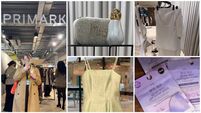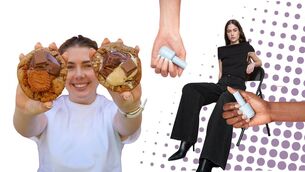How to care for your skin: 'Hyaluronic acid isn't great for those in their twenties'
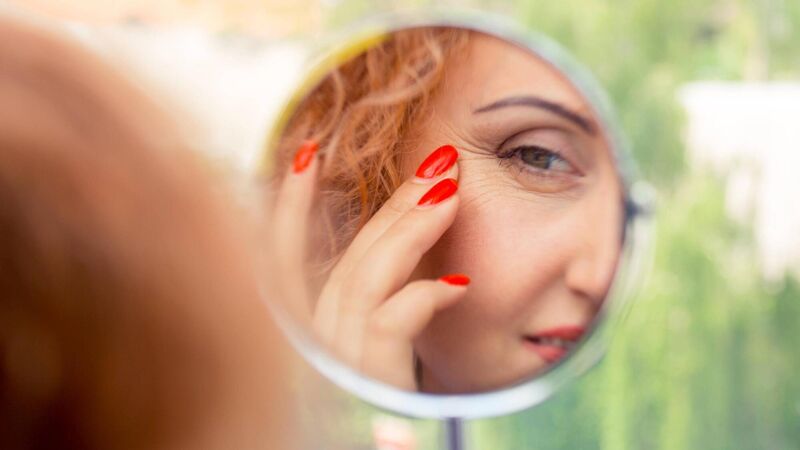
Experts share their hero skincare products as well as tips to help us care for our skin at different ages.
There are some skincare rules that apply to all ages and skin types (wear your SPF every day, don’t sleep in your make-up), but as we move from our teens to our 20s, our 30s, the 40s and beyond, there are often issues that come and go with the decades themselves. We asked the experts what we should be focusing on through some of the key decades of our lives — and got their hero product recommendations to help us on our way.
The biggest issue beauty therapist Susan Fox sees in women in their 20s is that they are overworking their skin.
“They’re using far too many products,” she says, “and they’re not giving a product enough time to see if it works for them.”
“Nothing is going to work in two weeks — you need to give a product three months at a minimum.”
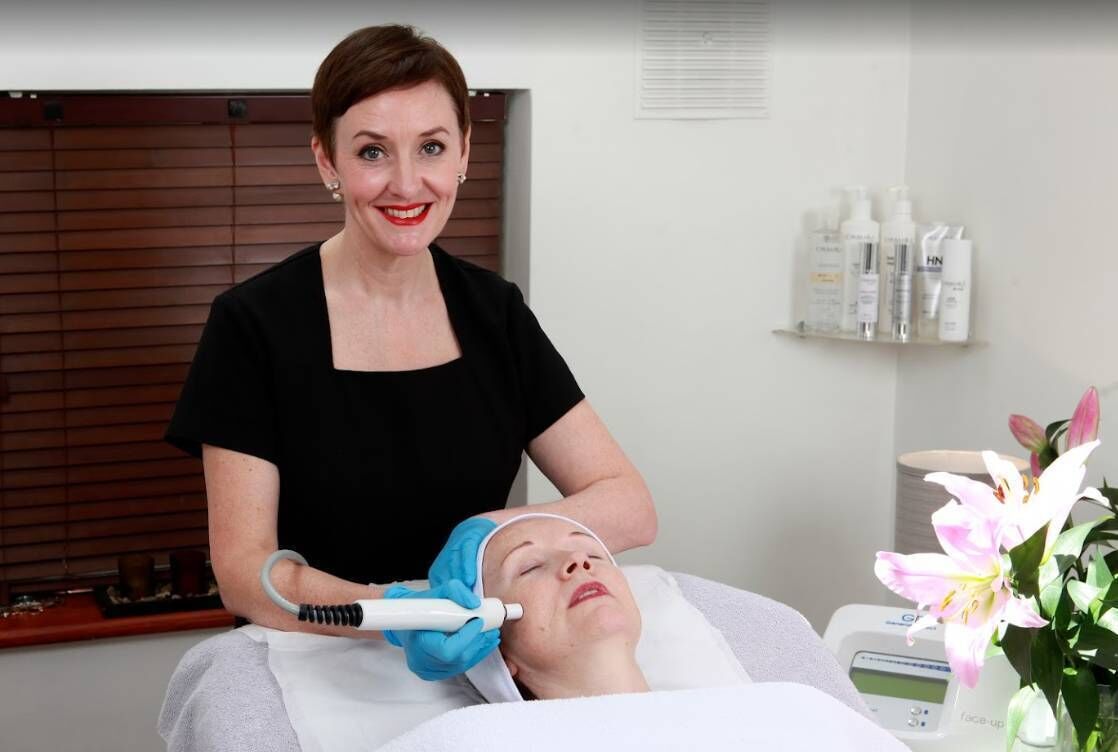
As a self-confessed skincare addict in their early 20s who has bottles of half-used serums and acids in my bathroom cabinet, I feel admonished — I am guilty of exactly what Susan is describing.
“There is just too much information out there and people don’t know what they’re doing,” Susan says, by way of lessening the slap-on-the-wrist.
“People are trying to dry up oils and reduce breakouts, but what they are actually doing is drying out and overworking their skin, which is in turn, leading them to have impaired barrier function.”
“There is just too much information out there and people don’t know what they’re doing.
“They’re trying the wrong ingredients, buying the wrong products, and mixing lots of things together.”
Susan’s advice to women in their 20s is to pare everything back and stick to the basics.
And don’t get wrapped up in marketing — you don’t need every hero ingredient, and besides, not every hero ingredient will be a hero for YOU.
“For example, I don’t really think that Hyaluronic Acid is great for younger problem skin and those in their twenties,” she says. Cue a large intake of breath.
“Yes, it locks moisture in your skin, but that means it also locks sebum into your skin!” she exclaims.
“I have a lot of people who come to me and say that their skincare routine and products are not working, and when I ask how long they’ve been using them, the answer is usually 6-8 weeks. This is not enough time to give the product a chance to actually make a change.
“Their skin just ends up overstimulated and producing even more sebum, which is the opposite of what they want to achieve.”
Another common problem women in their 20s present with at Susan’s clinic is stress-induced breakouts.
“Stress is a major issue at the moment and a lot of the breakouts I am seeing are with people who suffer from huge anxiety.
“Your skin is a reflection of your health, both mental and physical, and stress plays such a huge part in breakouts,” she explains.
While having less stress in your life will definitely see improvements in your skin, Susan says telling her clients to “stress less” is pointless.
“There’s no point saying get rid of the stress in your life, it won’t happen. What I would recommend is a probiotic, because they can help hydrate the skin and repair your skin’s barrier,” she says.
Susan’s last bit of wisdom for us cash-strapped twenty-somethings — be smart about where you spend your limited funds.
“You don’t need an expensive cleanser, but you do need a good serum. A good serum is worth any amount of money, but you can get a good cleanser for less than 15 quid.”
A lighter serum for acne-prone skin:
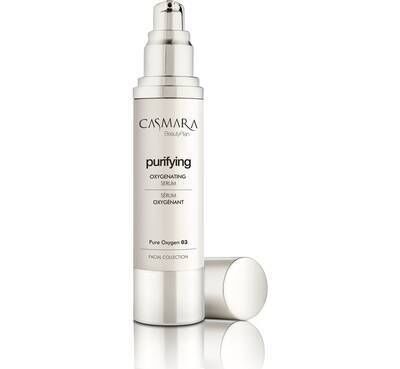
Casmara Purifying Oxygenating Serum, €36 from edenbeautygroup.com
A probiotic for stressed-out skin:
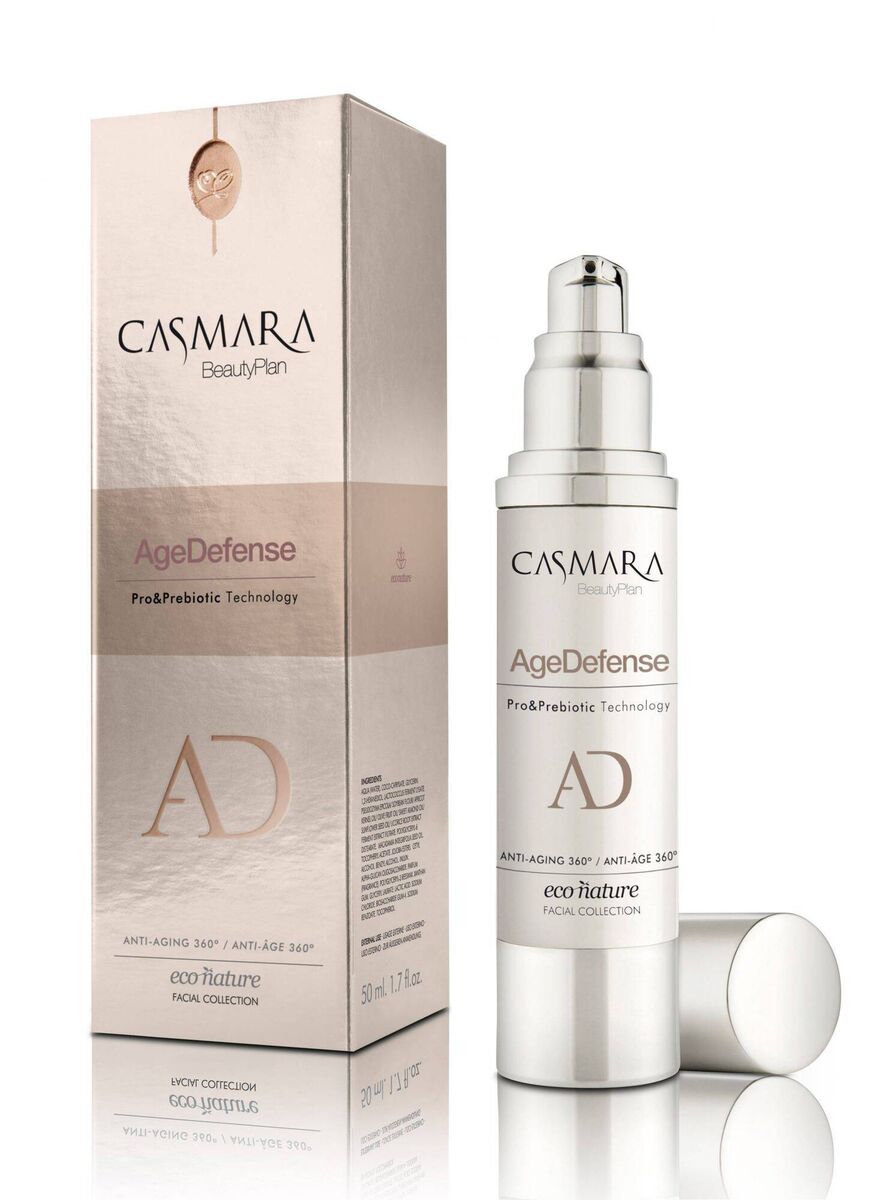
Casmara Age Defence, €42 from edenbeautygroup.com
When we reach out 30s, issues like redness and hyperpigmentation can start to come to the fore.
Jennifer Rock aka The Skin Nerd says there can be lots of reasons for this — sometimes it’s genetic, but often times it’s down to lifestyle factors, which we can affect.
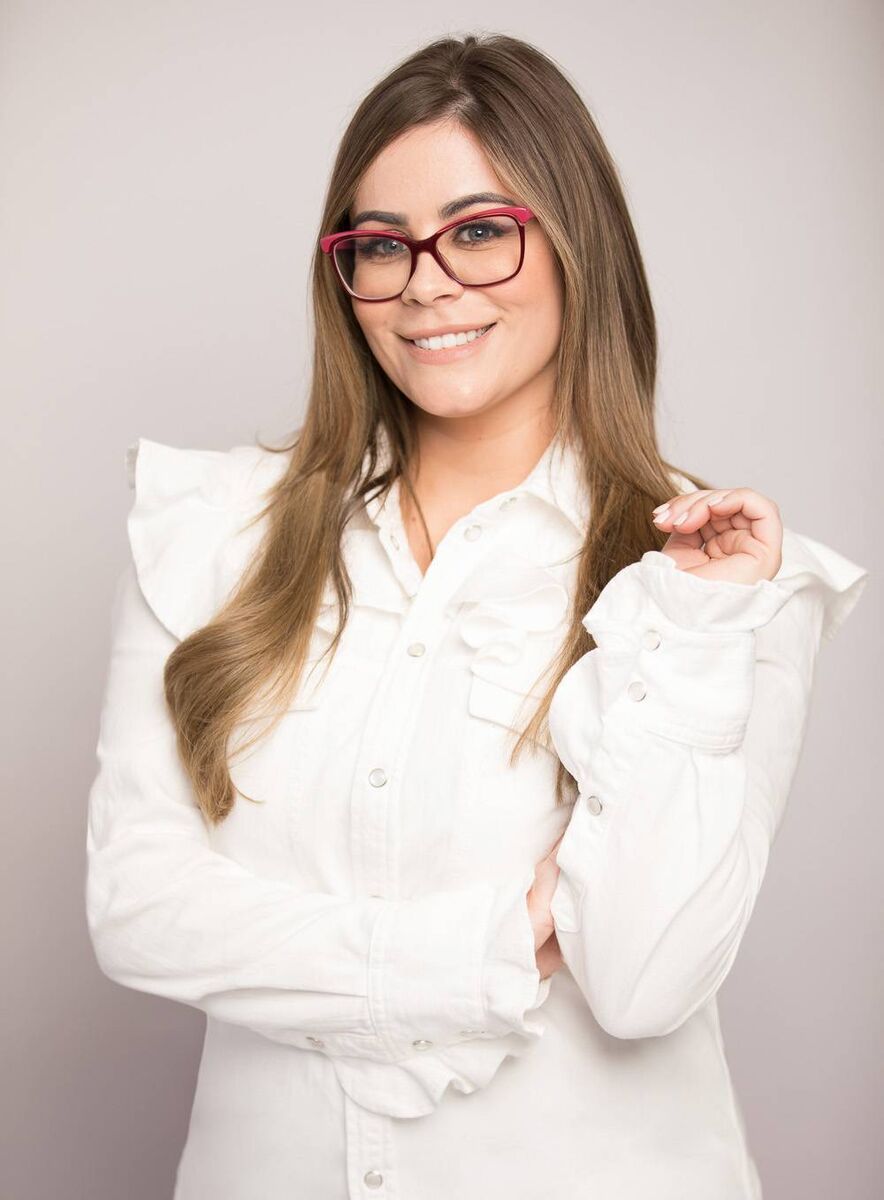
“A lot of redness is caused by sun damage,” she explains.
"You often see people with what you would call a 't-shirt mark'— where people have a lot of redness across their chest.
That's called photodamage, and it's damage that's caused by the sun. It's caused by being out and about as a child, through their teens, their 20s.
“By the time you get to your 30s, you’ve been exposed to the sun for three decades and your skin can start telling tales.”
Naturally, Jennifer says prevention is better than cure, and SPF is a must, each and every day (yes, even when it’s cloudy).
“SPF isn’t foolproof, nothing is,” she says. “But, there is a cocktail of ingredients that you can use to help repair the visible damage you see.”
“Some of those would be vitamin C, vitamin B3 which is more commonly known as niacinamide and azelaic acid.
If you ask Jennifer (and we did), it’s never too early to start proactively preventing the visible signs of skin ageing.
But when you hit your 30s, this is definitely something you need to start priortising in your skincare routine.
“Whether you’re proactively preventing or addressing the problem directly in your 30s depends on the person,” she says, but either way, retinol is a good shout.
If you’re just beginning to experiment with retinol, Jennifer advises starting with retinyl palmitate, a gentler, more slowly absorbed version of vitamin A which most skin types tolerate well.
A redness neutralising serum:
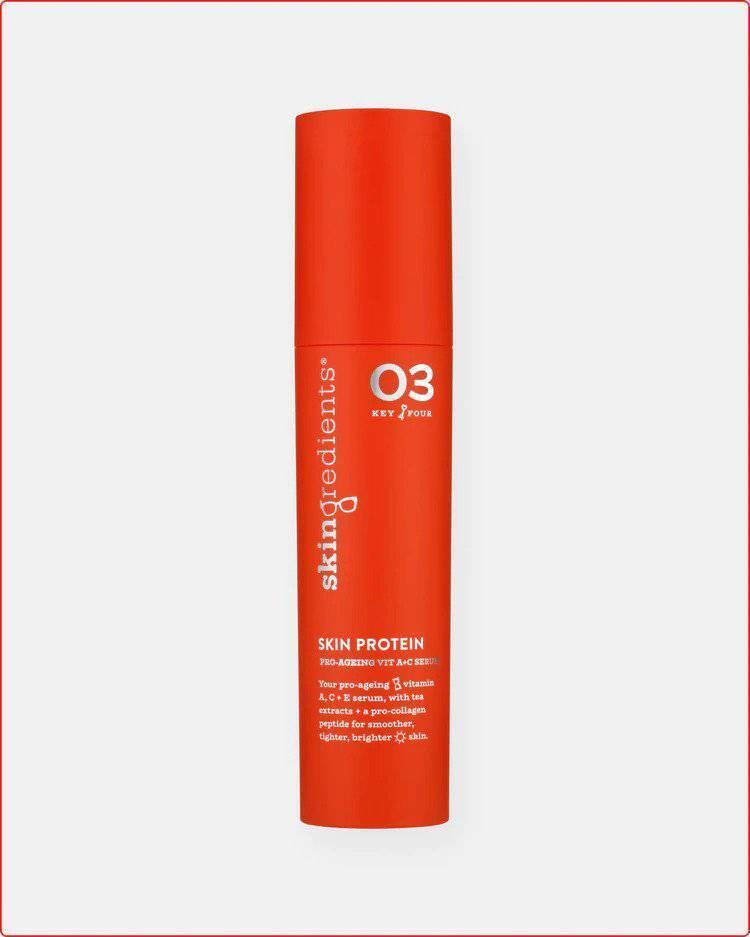
Skingredients Skin Protein Anti-Ageing Retinoid Serum (€55.00, theskinnerd.com)
A stand-out SPF:
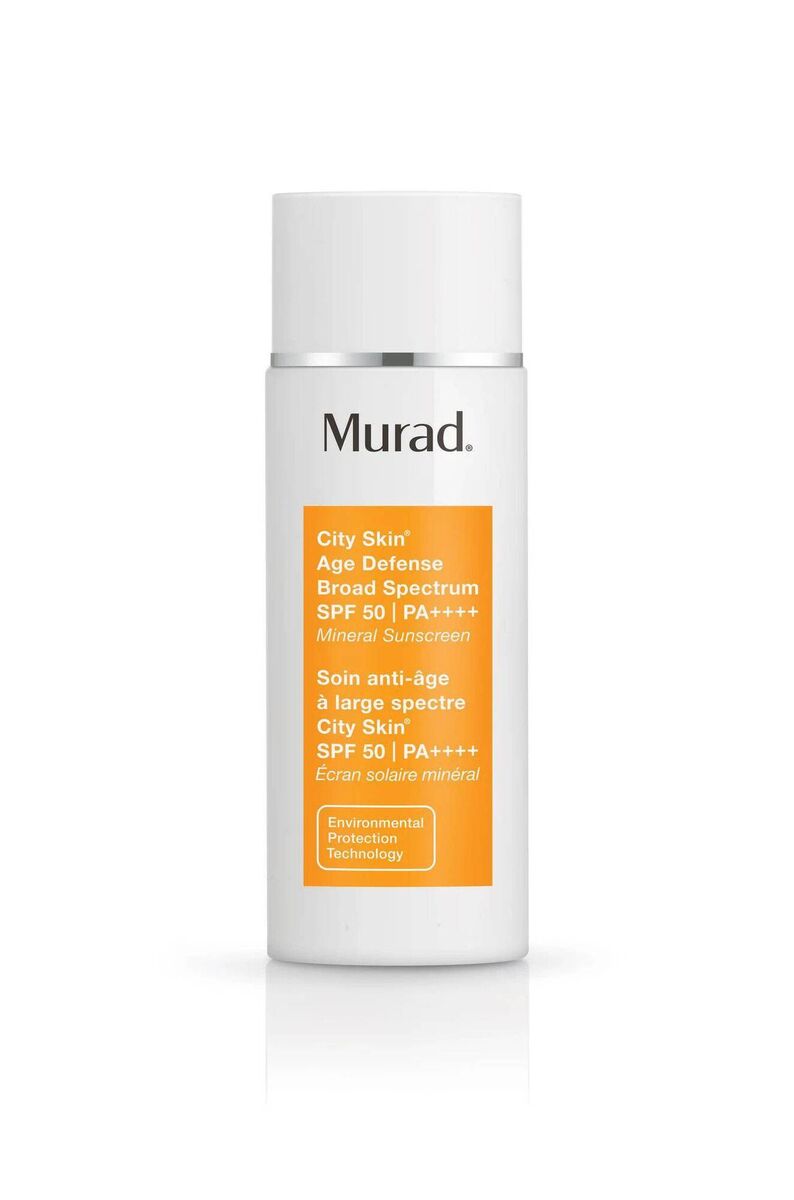
Murad City Skin Broad Spectrum SPF 50 (Sale price €45, theskinnerd.com)
For women, the 40s is commonly the decade when women first start to become perimenopausal or menopausal. And with that, comes a drop in levels of estrogen — which has a direct effect on the skin.
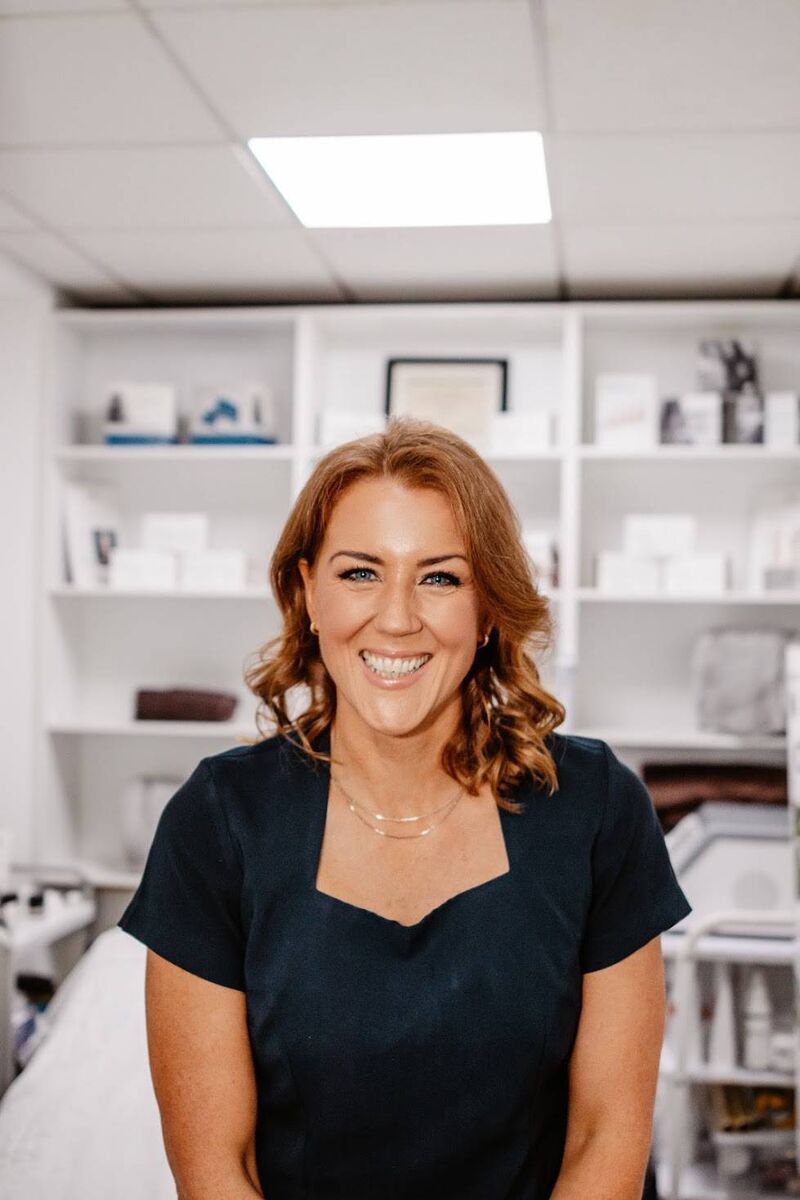
“Estrogen affects our hyaluronic acid levels in our skin,” Eavanna Breen explains.
“Hyaluronic acid is a naturally occurring acid in our skin, and it’s what gives our skin moisture and keeps it plump and hydrated.” But as we age, our hyaluronic acid supplies decrease and this is why many women in their 40s can start to experience issues with dry skin. To help prevent and/or treat this, Eavanna says investing in hydrating serums and treatments should be a top priority in this decade of your life.
“Your 40s is the to step things up a notch in terms of anti-ageing skincare,” she adds.
“The skin needs more peptides and it needs more retinol.”
And what about collagen I wonder — it seems that everyone is pushing collagen supplements these days.
“Collagen is a protein in the skin that keeps our skin elastic, strong and resilient,” Eavanna explains.
“And once you go over the age of 25, you're losing 1% of your collagen production per annum. So by the time you're 40, you've really lost quite a lot of that production of collagen.
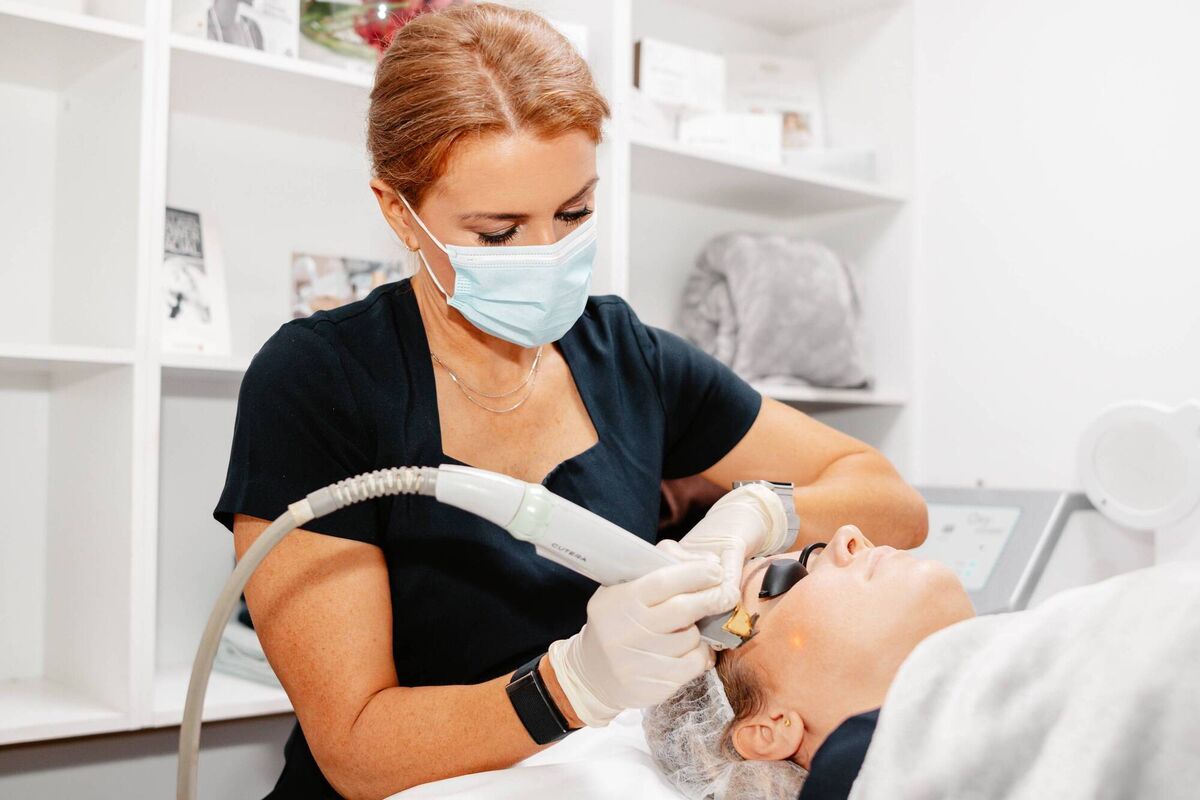
“The lack of collagen will mean that you start to visibly notice lines and wrinkles. If you imagine a mattress with lots of stuffing in it, if you start to loss some of that stuffing, the mattress won’t be as firm — it’s a bit like that with collagen and the skin.”
“But taking collagen supplements doesn't necessarily replenish those stores,” Eavanna says, and while some studies have shown that taking oral supplements of collagen can show an improvement, the improvement is marginal to the point that many of us wouldn’t be able to notice the difference.
“Instead of looking at collagen supplements, I would recommend retinol. It’s the most researched, active ingredient that can actually stimulate the collagen production in your skin.
“I would also recommend salon treatments such as micro-needling, regenerative laser, and radio frequency skin tightening, all of which will help to stimulate your collagen synthesis.”
A hydrating serum:
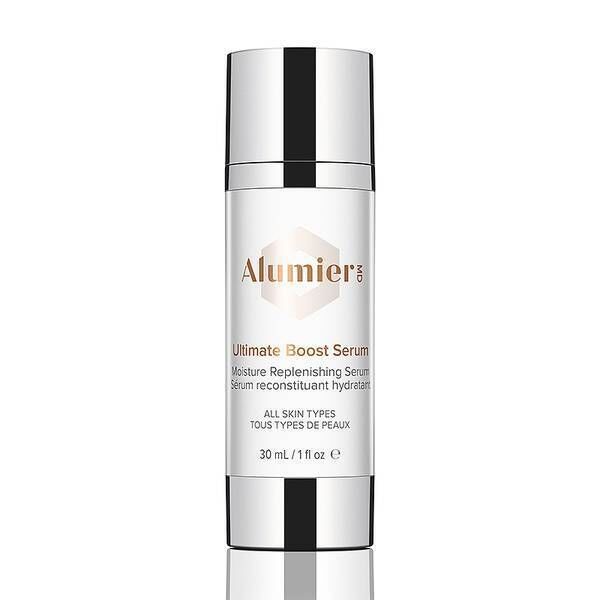
AlumierMD Ultimate Boost Serum, €95.
A reliable retinol:
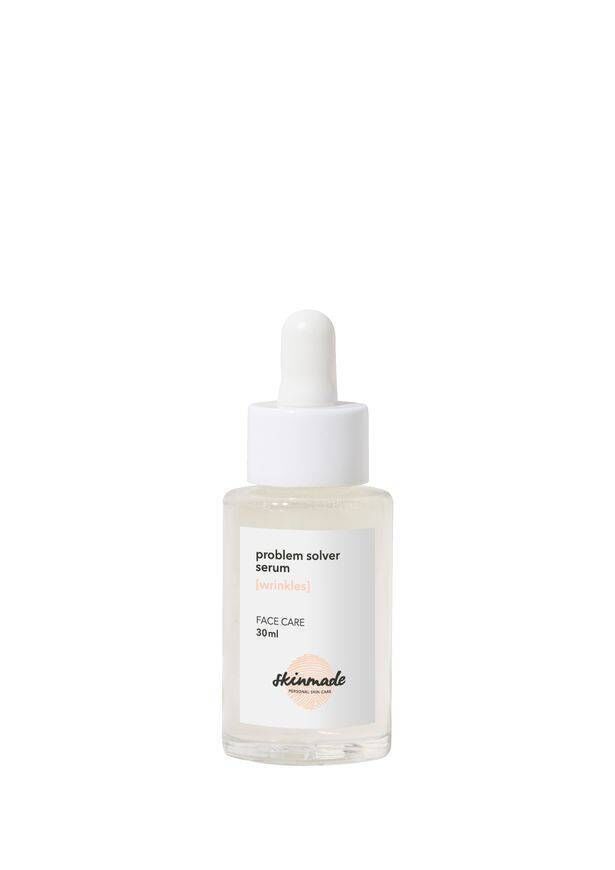
Skinmade Problem Solver Serum, €65 from akina.com



